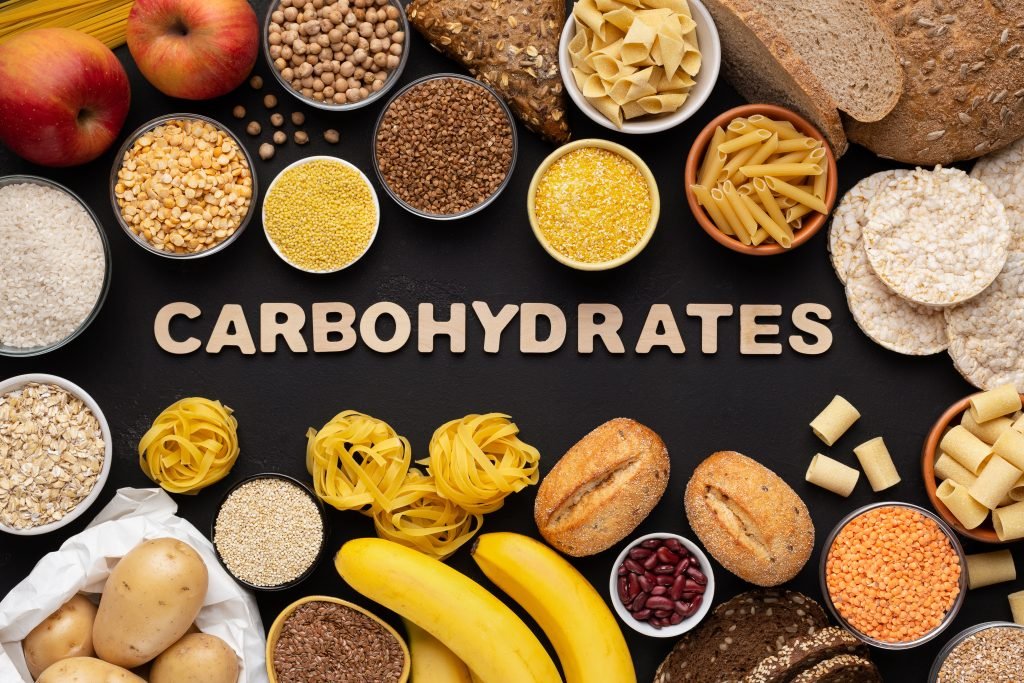Finding Your Carbohydrate Balance: Intake Vs Need
In the world of fitness and nutrition, the role of carbohydrates often takes centre stage. We've all heard about the importance of carbs as the body's preferred source of fuel. However, the intricate relationship between carbohydrate intake, individual needs, and physical activity is often overlooked. In this post, we will explore the nuances of carbohydrate consumption, considering factors such as individual differences, storage capacity, and the interplay with other macronutrients.
Understanding the Body's Fuel Mechanism
Given that glucose serves as the body's immediate and preferred source of fuel, one might naturally assume that our diets should primarily consist of carbohydrates. According to the Dietary Guidelines Advisory Committee, a minimum intake of 130g of carbohydrates per day is recommended to fulfil the body's fundamental energy requirements and supply fuel to the brain. Nonetheless, there is an alternative perspective suggesting that the body can operate effectively with a significantly lower carbohydrate intake. This is due to the body's ability to generate fuel internally by converting stored glycogen into glucose, producing glucose from fatty acids and amino acids through gluconeogenesis, and synthesizing ketones to replace glucose as a fuel source. The estimation is that the body's minimum daily glucose requirement is around 50g, a threshold achievable through gluconeogenesis alone, provided that the diet is rich in fats and proteins to supply the necessary materials.
Nevertheless, sustaining ourselves with just 50g of glucose per day represents the absolute minimum needed for basic functionality. Each individual possesses distinct carbohydrate needs based on their biological composition and lifestyle.
Individualized Carbohydrate Needs
This flexibility of energy sources challenges the notion of a rigid carbohydrate requirement and opens the door to individualized nutritional approaches, and individual carbohydrate needs will vary based on biological makeup and lifestyle factors. Factors such as muscle mass and physical activity level play a crucial role in determining the appropriate carbohydrate intake for each person. Simply put, the more muscle mass or physical activity, the higher the demand for dietary carbohydrates.
Muscle mass acts as a reservoir for glycogen, the storage form of glucose. The more muscle mass one has, the greater the glycogen storage capacity. Additionally, physical activity depletes these glycogen stores. Therefore, an active individual with ample muscle mass requires higher dietary carbohydrates to replenish glycogen and sustain energy levels.
While carbohydrates are a vital energy source, the body has limited storage capacity for glycogen. The liver can store about 80-100g, and muscles can store between 300-600g depending on individual muscle mass. Consuming carbohydrates beyond this storage capacity can lead to the conversion of excess glucose into body fat.
The key to preventing fat gain and encouraging fat loss lies in balancing carbohydrate intake with physical activity. Regular exercise utilizes stored carbohydrates, preventing their conversion into fat. Understanding your body's unique storage capacity and adjusting carbohydrate intake accordingly is crucial for maintaining a healthy balance.
The Interplay Carbohydrates, Protein, And Fat
Carbohydrate intake should never be considered in isolation. The interplay between carbohydrates, proteins, and fats is essential for a well-rounded and effective nutrition plan. Both carbohydrates and fats serve as sources of fuel. To avoid oversaturating the body with excessive calories, they should be consumed in an inverse ratio. When carbohydrate intake is high, fat intake should be relatively low, and vice versa. This balance ensures that the body receives the necessary fuel without tipping the scale towards an excess of calories.
Protein, the third macronutrient, plays a crucial role in this balance. Protein not only provides energy but also supports muscle repair and growth. As such, it should be a consistent part of your nutritional strategy. Finding the right balance between carbohydrates, proteins, and fats is the key to optimizing energy levels, supporting physical activity, and maintaining a healthy body composition.
The concept of a universal carbohydrate requirement is a simplification that may not suit everyone. Individualized approaches, considering factors such as muscle mass, physical activity, and the interplay with other macronutrients, are essential for optimal performance and overall well-being.
Understanding your body's unique needs empowers you to tailor your carbohydrate intake for maximum effectiveness. Whether you're an athlete striving for peak performance or someone looking to maintain a healthy lifestyle, finding the right balance is the key. So, listen to your body, experiment with different approaches, and if needed work with a nutrition professional or personal trainer life myself to discover the carbohydrate intake that fuels your life best.


